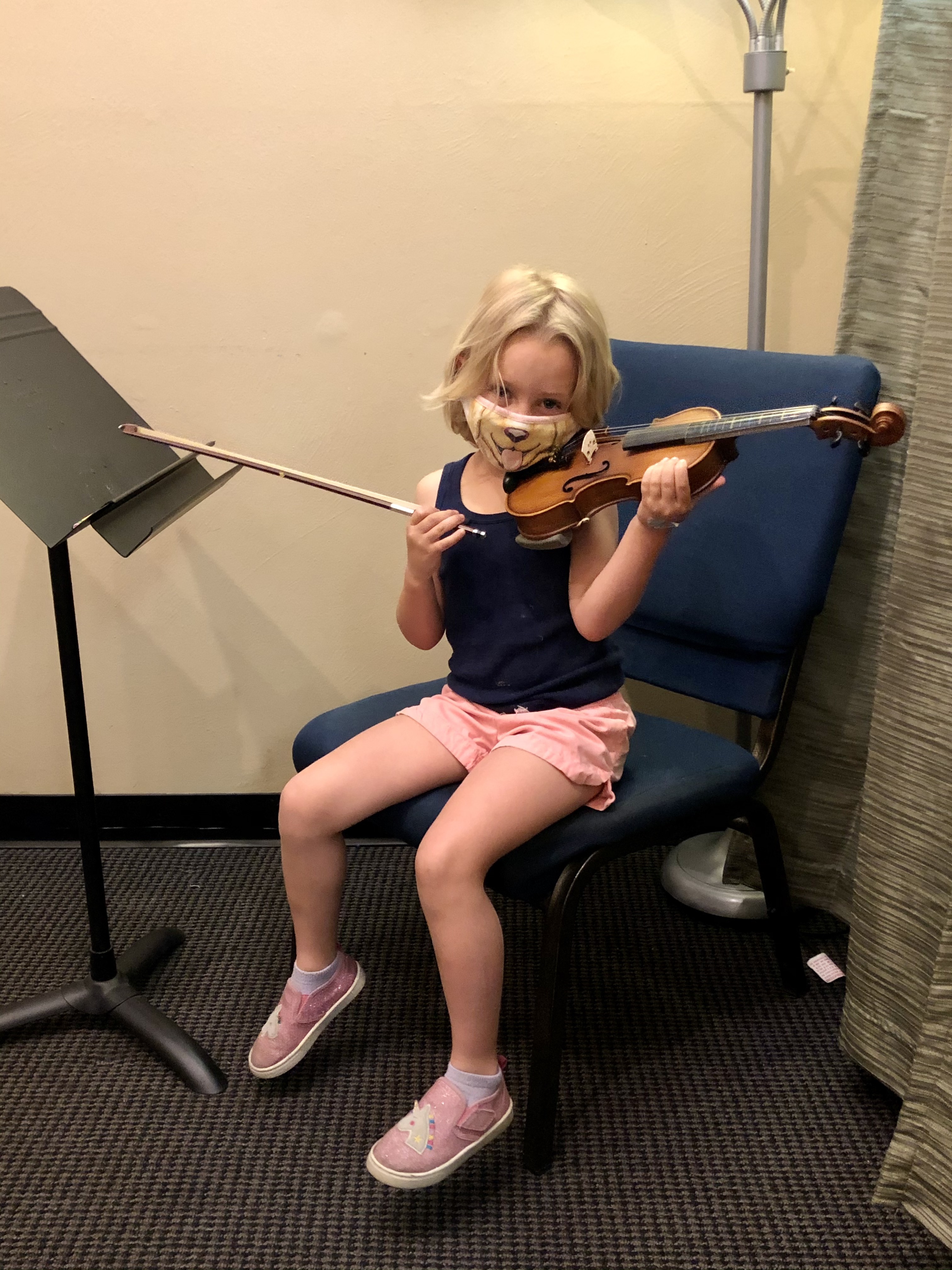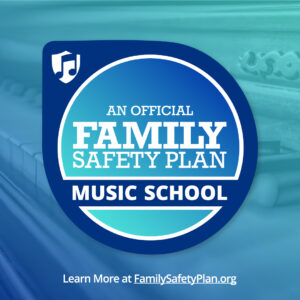10 Reasons Why People Who Learn Music Are More Likely To Be Successful

- They Are More Creative
Recent research has shown that many successful politicians, businessmen, and more were trained at a young age to be a musician of some kind. Whether it be of a piano, clarinet, or saxophone, it didn’t really matter.
What does matter is that these people credit their music education with making them more creative. Indeed, as Paul Allen (co-founder of Microsoft) once stated, music allows you to “look beyond what currently exists and express yourself in a new way”
2. Their Brains Develop Differently
As many studies have shown, playing an instrument tends to have a multitude of beneficial effects on the brain, many of which are especially visible in children.
Indeed, those who start from an early age (around 9 to 11) have “significantly more grey matter volume” within their heads (Parenting Science). While this doesn’t necessarily mean that musicians are smarter, it does demonstrate that their brains are making unique and interesting connections and associations that those who do not play instruments might lack.
3. They Connect With Others Better
Music is often thought of as a way to connect different cultures, ideas, and perspectives. Even when you are unfamiliar with a location, you can always use your ability to play music to get to know those around you, and establish connections that may have been impossible to create otherwise.
4. They Are Better At Math
This likely has to do with the fact that both deal with analyzing puzzles and finding patterns in order to find solutions. If you can get a sense of the ebb and flow of music and musical language, mathematical concepts should begin to make more sense. Being better at math is beneficial for a number of reasons, if only because so many new jobs in this day and age rely on that skill.This likely has to do with the fact that both deal with analyzing puzzles and finding patterns in order to find solutions. If you can get a sense of the ebb and flow of music and musical language, mathematical concepts should begin to make more sense. Being better at math is beneficial for a number of reasons, if only because so many new jobs in this day and age rely on that skill.
5. They Have A Better Sense Of Rhythm
When you are a musician, it is easier to get into the groove of things and accomplish repetitive tasks at a consistent rate. (It also helps with stuff like dancing!)
Thus, learning how to maintain a steady pace not only makes for a good musician, but a more productive and effective worker as well.
6. They Are Obsessive
Any musician, whether they be a novice or an expert, has to be just a little obsessive to cultivate their craft. Roger McNamee, an early investor in Facebook, stated that “musicians and top professionals share ‘the almost desperate need to dive deep’” (NYT).
To become proficient at playing music requires a lot of time and dedication. If you are willing to put effort into that, you will likely tackle other things with that same gusto.
7. They Are More Likely To Have A Higher IQ
This is especially true if they started playing music at a young age, like say around 6 years old. Indeed, one study found that kids who took up an instrument around this age showed a greater increase in their IQ compared to those who did not (Science Net Links).
Suffice it to say, having more intelligence to work with than your peers is often crucial in gaining the upper hand.
8. They Process Speech More Efficiently
Becoming successful requires that you be a good listener, and musicians are groomed to acquire that skill early on in their development.
Indeed, research has shown that learning how to play music has a beneficial effect on the areas of your brain that process sounds — an effect that lasts even into old age (Washington Post).
Listening is an important skill to have, as the ability to make sense of speech and complicated strings of words and sentences is crucial to success.
9. They Are Conditioned To Work Hard For Results
Indeed, one expert stated that an amazing thing about learning music is that “if you work hard enough, it does get better” (NYT).
Music thus conditions you to believe that working harder gets results, and while that may not always be true in everything, it does lead to you pushing yourself harder in order to see measurable improvements in all aspects of your life.
10. They Have More Self-Control
Indeed, learning how to play an instrument and read music is an immensely difficult task when you first start out, and requires a lot of mental focus. And, once you are skilled at playing music, it takes both talent and self-control to keep rhythm, to maintain a beat, and to otherwise stay on the musical rails, so to speak.
Translate that ability to remain dedicated and focused on the task at hand to the real world, and it is easy to see why so many musicians end up being successful in other fields.
Onsite lessons are back!
How onsite lessons work…
Masks are mandatory for EVERYONE in the building at all times.
All teachers, staff, and students will be required to wear masks. We will have lots of complimentary masks available if you forget yours.
For now, only students will be allowed in the building.
Lobbies will be closed for now. There will be a small amount of chairs spread out throughout the building for students.
Pickup and drop-off
You’ll drop your student off and walk them to the school entrance. Your teacher will escort the student to their lesson. For pickup, your teacher will escort the student back to the front where you can meet them.
Sanitizing
All frequently touched surfaces ie: door knobs will be sanitized between every lesson. There will be hand sanitizer and wipes in every room for students and teachers. Additionally, there will be air filtration units in every studio.
Social distancing
All lesson rooms will have the teacher and the students spaced apart 6 feet. There will be no shared instruments. ie: Piano rooms will be equipped with additional keyboards.
Can I keep my lessons remote?
YES. If you’d like continue to stay online, we will be offering that option. We have been teaching remote lessons for a long time, well before Covid. It has always been an option and will continue to be an option.
We can’t wait to see you back at the schools!
Welcome new students!
Evelyn Fenn
Easton Keck
Eric Cerda
Rita Ornelas
Isabella Palmieri
Isabella Gamas
Clayton Duncan
Gracie Im-Pyun
Nikhil Lotun
Charlie Markovich
Peyton La Rue
Elizabeth Del Valle
Ruby Kimball
Conner Goldkhul
Michelle Xu
Lucas Gebremariam
Cooper Graham
Vasneem Ahmed
Jesse Toiber
Brian McAllister
Amelie Puell
Ryan Bartz
Fred Weymouth
Brissa Martinez
AJ Murray
Gabriel Portillo
Emily Marco
Demian Grychanyuk
Elizabeth Cazesuz
Nick Ahrendt
Richard Thaxton
Nian Rezaie
Alan Liu
Danny Lemon
Kian Rezaie
Sarah Al Sudairi
Kelly Hubbard
Stacey Stevenson
Armour Haynes
Queen Zuriel
Harper Murphy
Naterrio Spencer
Suzanne Kwiatkowski
Ernesto Alvarez
Maya Alvarez
Alysia Seery
Natalia Castro
Camila Castro
Jana Taleb
Nancy Richards
Ariana Librea
Jayden Boroski
Paul Harris
Daniel Fuller
Kaila Nogle
Rose Barlette
David Poda
Ben Maes
Gabbie Johnson
Bella Luna
Sharon Kosters
Bobby Barlette
Isabella Campa
Cory Franklin
Cissy Morgan
Nicole Cecil
Miley Jassim
Ashley Anderson
Kellen Tanner
Thanks for referring your friends!
Refer a friend, get a free month!
★Huy Truong
★Instrumental Music
★Larisa Kohn
★Manzanita Elementary
★Sarahi
★Jon Vogel
★Jessica Howe
★Melissa Florez
Thank you for the Google reviews!
Leave us a Google Review and we’ll give you a free lesson!
Rachel Ruder ★★★★★
My daughters have taken voice, guitar, and drum lessons at Allegro, and they’ve loved their experiences! The staff is professional and consistent. As a parent, I’ve enjoyed the ways in which they’ve incorporated technology.
Joseph Poff ★★★★★
I was nervous going into my first voice lesson but my teacher made me feel comfortable. I’m looking forward to achieving my goals!
Angela Morgan ★★★★★
Everyone is very friendly and warm. Coming here feels like visiting family (in a good way!). My daughter’s piano teacher is very positive and encouraging which is doing wonders for her confidence and feeding her passion for music 🙂

For New Students ONLY:
For Currently Enrolled Students:
Study: Music Students get better grades in Math, Science, and English than their nonmusical peers

High schoolers who take music courses score significantly better on exams in certain other subjects, including math and science, than their nonmusical peers, according to a study published by the American Psychological Association.
“Students who participated in music, who had higher achievement in music, and who were highly engaged in music had higher exam scores across all subjects, while these associations were more pronounced for those who took instrumental music rather than vocal music,” he said. “On average, the children who learned to play a musical instrument for many years, and were now playing in high school band and orchestra, were the equivalent of about one academic year ahead of their peers with regard to their English, mathematics and science skills, as measured by their exam grades.”
“Learning to play a musical instrument is very demanding. A student has to learn to read music notation, develop eye-hand-mind coordination, develop keen listening skills, develop team skills for playing in an ensemble and develop discipline to practice. All those learning experiences play a role in enhancing children’s cognitive capacities and their self-efficacy,”
Article: “A Population-Level Analysis of Associations Between School Music Participation and Academic Achievement,” by Martin Guhn, PhD, Scott D. Emerson, MSc, and Peter Gouzouasis, PhD, The University of British Columbia. Journal of Educational Psychology. Published online June 20, 2019.
Thanks for voting Allegro as Tucson’s Most Loved Music School!


